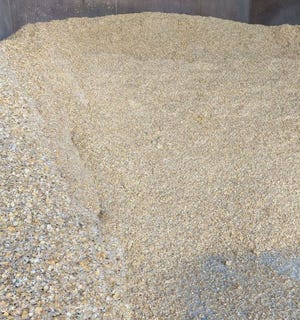More plant-based proteins encouraged in new Canada Food Guide
While the United States works on selecting committee experts to develop new Dietary Guidelines for Americans, Canada has released new recommendations that are very plant-based. Where is the beef?
January 23, 2019

Yesterday, I urged BEEF readers to write to USDA Secretary Sonny Perdue to urge him to help select strong nutritional voices for the next Dietary Guidelines for Americans committee.
Considering how impactful these recommendations are on our nation’s overall health, it’s imperative we get the right team of experts (ones who won’t be swayed by popular plant-based ideologies) to create guidelines that are nutrient-rich with the inclusion of red meat, eggs and dairy.
Committee members will be selected in the upcoming weeks, if the government shutdown comes to an end. As a result, this is an urgent matter that needs addressing.
Read more about it by clicking here.
And no offense to our Canadian friends and readers, but I hope our nation doesn’t follow with what our neighbors to the north have decided is the correct pathway to optimal health and nutrition.
Earlier this week, Canada released an updated Canada Food Guide, which encourages more fruits and vegetables and less meat.
According to the Montreal Gazette, the new guide recommends, “One quarter of the plate should be covered in whole grains, like rice, pasta or quinoa, and the other quarter should be filled with protein — preferably plant-based, the food guide states, like lentils or beans.
“Why plant-based protein? To increase fiber intake and lower intake of processed meats and saturated fat, to in turn reduce the risks of cardiovascular diseases, colon cancer and type 2 diabetes.”
In addition to the reduced meat recommendation, milk should be limited, per the guide. Dairy products no longer have their own category on the new guide; instead, they are lumped in with other proteins, which emphasize plant-based proteins as the first choice. Naturally, Canada's dairy farmers have an issue with this change.
“There is no scientific justification to minimize the role of milk products in a healthy diet as they are a key source of 6 of the 8 nutrients that most Canadians already fall short of,” Isabelle Neiderer, Dairy Farmers of Canada’s director of nutrition and research, and a registered dietitian, told the Montreal Gazette. “Milk products and other protein foods are not interchangeable. Lumping milk products together with other protein foods will lead to inadequate intakes of important nutrients.”
To get a full picture of the new recommendations, here are Canada’s five keys to a healthy diet:
Eat vegetables, fruit, whole grains and protein regularly.
Among protein foods, eat plant-based options — like beans, nuts, and tofu — more often.
Choose foods high in unsaturated fat, like avocados and peanut butter, over saturated fats, like meat and cheese.
Choose water over pop, fruit juice, alcohol or flavored milk.
Choose home-cooked over processed foods.
If you’re thinking, "not in America," think again. These recommendations align very closely with the popular rhetoric and nutritional advice being offered by health professionals here in the United States. Notice that of the five recommendations, meat and dairy are addressed in three of the listed bullet points.
It is irresponsible for these experts to ignore the increasingly large evidence about the importance of animal fats and proteins in the diet. It is alarming that nutritional advice is being shaped by perceptions of animal welfare or environmental sustainability instead of human health.
And it is just downright scary to think about how overfed and undernourished our world’s population will be if we don’t adequately address our protein needs with foods like red meat, eggs and dairy.
The fight for the center of the dinner plate is on. If tofu, beans and lentils become the number-one recommendation as the plant-based protein substitutes to beef, then we have not only failed our own industry, but we have failed the children, military, hospital patients and nursing home residents who will eat according to the new Dietary Guidelines for Americans.
The opinions of Amanda Radke are not necessarily those of beefmagazine.com or Farm Progress.
You May Also Like



